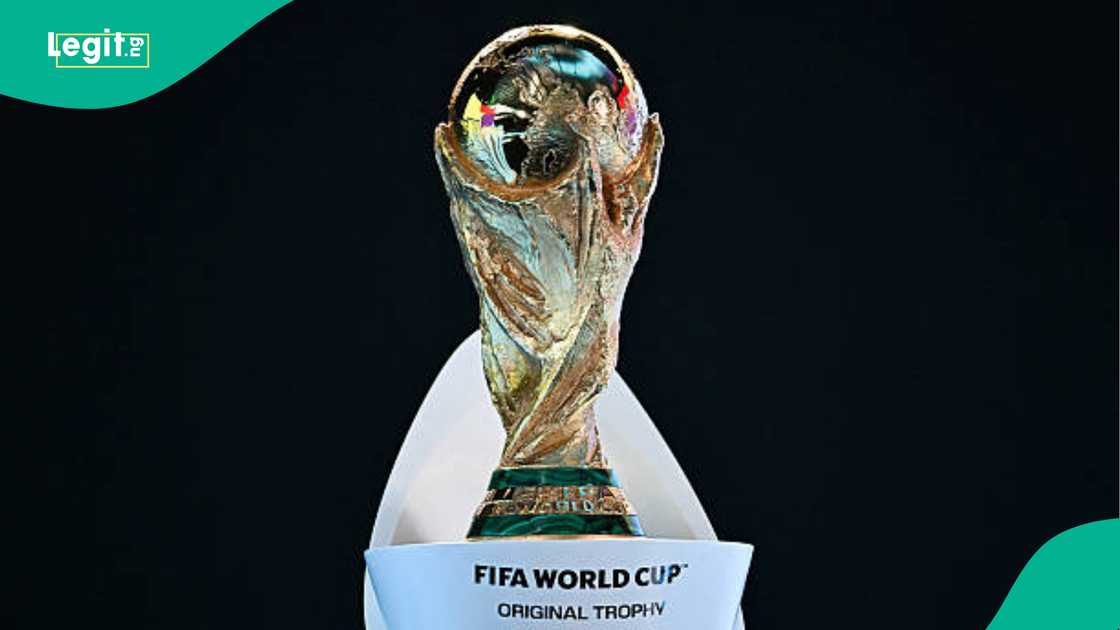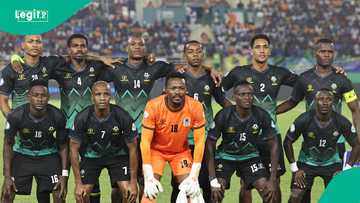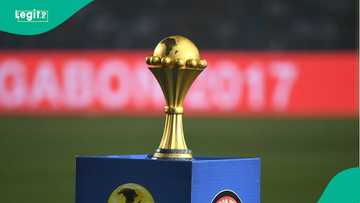FIFA Makes Major Controversial Decision Ahead of 2026 World Cup, Reportedly Set To Face Legal Action
- FIFA has suspended Cristiano Ronaldo’s remaining two-game ban, prompting accusations of favouritism
- Rival nations may take the case to the Court of Arbitration for Sport ahead of the 2026 World Cup
- The decision by FIFA has sparked debate over fairness and disciplinary transparency by the football governing body
FIFA’s latest disciplinary decision has sent shockwaves through world football, sparking outrage and raising the possibility of a major legal battle ahead of the 2026 World Cup.
The football governing body has chosen to suspend the remaining two matches of Cristiano Ronaldo’s three-game ban, allowing the Portugal captain to feature in the nation’s opening group fixtures in the United States.

Source: Getty Images
Ronaldo, who was sent off for elbowing Ireland’s Dara O’Shea during a tense qualifier earlier this month, initially faced a minimum three-match suspension under FIFA regulations for violent conduct.
According to One Football, the five-time Ballon d’Or winner served the first ban during Portugal’s emphatic 9-1 demolition of Armenia, but the disciplinary committee has opted to place the remaining two matches on hold under a one-year probation period.
The move, described by many as unprecedented, has stirred accusations of preferential treatment toward one of football’s biggest global legends.
FIFA reportedly set for legal battle
Daily Mail Sport reports that countries drawn to face Portugal in matches Ronaldo should have missed may consider taking the issue to the Court of Arbitration for Sport (CAS) in Switzerland.

Source: Getty Images
Such a challenge would aim to overturn FIFA’s suspension and reinstate the full punishment.
However, the legal bar is exceptionally high as any aggrieved federation must prove they are directly harmed by the decision and that Ronaldo’s availability meaningfully reduces their chances of progressing from the group.
As FIFA’s disciplinary framework allows discretionary decisions, outlined in Article 27 of its code, challengers would also need to prove the committee’s judgment was not only flawed but also unreasonable.
Despite these hurdles, several countries are expected to monitor the situation closely, especially those whose players remain suspended without similar leniency.
While England cannot be drawn against Portugal in the group stage, Scotland and potentially the Republic of Ireland, Northern Ireland, or Wales could find themselves directly affected depending on play-off results.
FIFA defends decision, cites probation clause
In an official statement, FIFA defended its ruling, emphasising that the suspension of the remaining two matches falls squarely within the legal framework of Article 27.
Under the terms of the probation, if Ronaldo commits another offence of comparable severity within the next year, the two-match ban will automatically be reinstated on top of any new punishment.
FIFA also reiterated that its disciplinary panel operates independently, a claim critics continue to scrutinise given the high-profile nature of the case and Ronaldo’s status as one of the sport’s most influential figures.
The World Cup draw adds fresh urgency to the matter as the possibility of Ronaldo featuring in matches where he would ordinarily be suspended is already shaping pre-tournament analysis.
FIFA bans three countries from World Cup
In another development, Legit.ng reported that FIFA has taken the extraordinary step of banning countries from the World Cup when political actions violate international norms.
With the 2026 World Cup fast approaching, expanded to 48 teams and featuring debutants like Cape Verde, Jordan, and Uzbekistan, the conversation has resurfaced amid geopolitical conflicts around the world.
Don't miss out! Join Legit.ng's Sports News channel on WhatsApp now!
Source: Legit.ng





